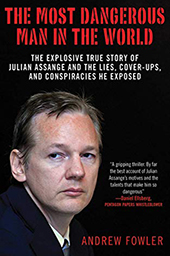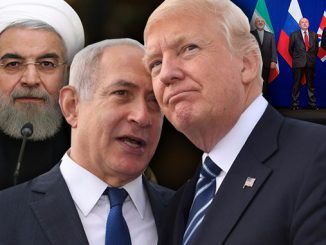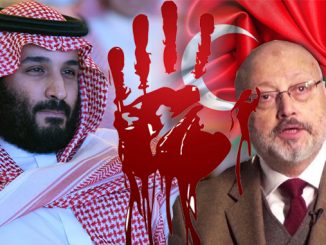
Christian Armenia and Muslim Azerbaijan may become battleground for Putin, Erdogan.
By Richard Walker
There is potential for Russia and Turkey to square off in a proxy war in the Caucasus where they are on opposing sides in a reignited conflict over Nagorno Karabakh, a small disputed region claimed by both Armenia and Azerbaijan.
Those knowledgeable about 20th century conflicts will recall that during the last war fought over this former Soviet enclave, from 1988 to 1994, 30,000 died and hundreds of thousands were displaced.
While Nagorno-Karabakh is recognized as Azerbaijan territory, its population is composed mainly of Armenians who run it as an independent statelet. Throughout history, the region has been the home of Christian Armenians and Muslim Turks. Armenia is notable for the fact that in A.D. 300 it became the first nation to embrace Christianity as its national religion. Armenians suffered genocide at the hands of Turkey in 1915 when 1.5 million of them were slaughtered by Turkish forces, a historical fact that Turkey refuses to admit. The bitterness toward and fear of the Turks resulting from that genocide are factors in this situation: Armenia fears Azerbaijan because its ally is Recep Erdogan’s Turkey.
On the other hand, Russia has a major military base in Armenia, and Vladimir Putin is a follower of the Eastern Orthodox Christian rite. The fact that Muslims and Christians are on opposite sides has been compounded by Iran’s sudden declaration of support for Azerbaijan. In fact, some are viewing this conflict as a religious battle.
After the last conflict, it was agreed that while Nagorno Karabakh was Azerbaijan’s, it could be ruled by the Armenians who lived there. So why is there now a renewed conflict with intense fighting on both sides? The answer may be Turkey. French President Emmanuel Macron has claimed that he has evidence of hundreds of jihadists being ferried by Turkey from the Syrian city of Aleppo to Azerbaijan.
“A red line has been crossed, which is unacceptable, and I urge all NATO partners to face up to the behavior of a NATO member,” said Macron.
So, the issue may indeed be Turkey because it has rejected calls from Moscow and other international capitals for a ceasefire. It appears that Turkey has sent upward of 900 fighters from Syria, many of whom may be members of Islamic terror groups that fought in the war there to bolster Azeri forces. In a further complication, Armenia recalled its ambassador to Israel, which is selling drones and other weapons to Azerbaijan.
Turkey has been encouraging Azerbaijan to establish control over Nagorno Karabakh, a move opposed by Armenia, which supports the ethnic Armenians running the enclave. Since 1994, there have been small-scale clashes, the latest being in 2016. Now, however, it appears that both sides could be headed to all-out war.
Without Russia, Armenia would be no match for Azerbaijan and Turkey. There are roughly 3 million Armenians in the region and three times that number of Azerbaijanis. Iran says that there is now potential for a widespread conflict.
The Trump administration does not appear to have placed much emphasis on the risk of a war. Perhaps the fact that Turkey is in NATO, and many members of Congress on both sides have in the past expressed support for Armenia, makes taking a stand very tricky. Moscow may hold the key to a ceasefire. Vladimir Putin has the power to make it clear to Turkey that Russian forces will come to the aid of its ally Armenia should it be in jeopardy of being overrun. In the face of such a threat, the Turks might think twice. That is why Erdogan may choose a proxy war, using fighters from Syria to wage war in Azeri  military uniforms.
military uniforms.
Such a move would antagonize Putin, who has concerns about the presence of extreme Islamic elements in the Caucasus, very close to Russia’s borders. The prospect of more such fighters being inserted into the region would undoubtedly draw the ire of Washington and NATO members across Europe.
Armenians in this mountainous part of the world say they have been expecting a war for a quarter-century, a fact that underscores the tensions with which they have been living. In Azerbaijan there is a patriotic demand for the return of control of Nagorno Karabakh with many insisting that reclaiming it is a national right. That appears to be a view the Turks support.

Some outside the region are alarmed by the meddling of Erdogan. It’s obvious he wants more influence in the Muslim world. This view is bolstered by his interventions in Syria and Libya. Others think the 1994 ceasefire left too many unresolved issues, one being that large areas of Azeri land surrounding Nagorno Karabakh have fallen into the hands of ethnic Armenian insurgents. It is one of those conflicts over land that history has shown us can lead to a major war. A comparison would be the battles that almost became nuclear over the competing claims by India and Pakistan over Kashmir. It was an area artificially created by the British when they partitioned the Indian subcontinent, leading to the emergence of two nations, India and Pakistan. The British did not know how to allocate the region of Kashmir,so they left it unresolved. To this day, India and Pakistan claim it as their own and have fought proxy wars over it in the past. This could be the fate of Nagorno Karabakh.
Richard Walker is the nom de plume of a former New York mainstream news producer who grew tired of seeing his articles censored by his bosses.





